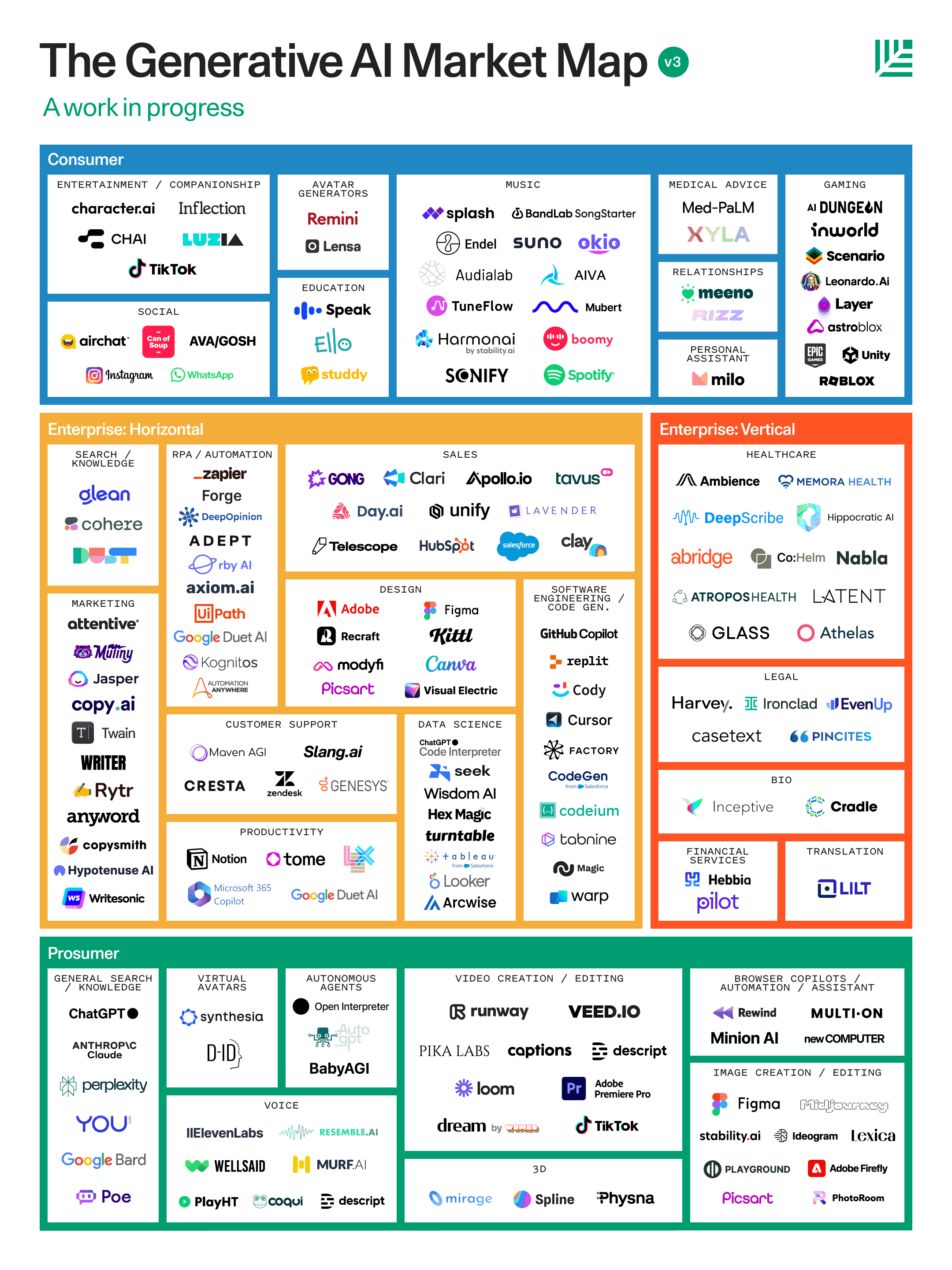In the rapidly evolving world of generative AI, enterprises face the critical challenge of selecting the right vendor amidst a plethora of options. This decision-making process is further complicated by recent events at OpenAI, where a near-collapse scenario raised questions about the stability of even the most prominent players in the AI field.
The rise and risks of AI adoption
The adoption of generative AI has skyrocketed, with OpenAI leading the charge. According to an O’Reilly survey, 23% of companies now use OpenAI’s models, dwarfing the usage of its nearest competitor, Google’s Bard. However, this high adoption rate underscores the inherent risks in the AI vendor market. OpenAI’s recent turmoil, which almost led to its downfall, highlights the vulnerability of enterprises heavily reliant on such technologies.
This vulnerability extends to the multitude of AI startups in the market. The G2’s state of software report shows that AI is the fastest-growing category, with over a thousand vendors and a surge in new products. This growth is mirrored in specific AI sectors like synthetic media and AI writing assistants. However, the rapid emergence of new players and products in the AI space brings with it risks related to data privacy, copyright issues, bias, ethical concerns, and regulatory compliance.
Vendor evaluation of more than just technology
For enterprises like Rich Products, selecting an AI vendor goes beyond assessing technological capabilities. As Yexi Liu, CIO of Rich Products, notes, it’s crucial to evaluate vendors based on their technology, business value, and pragmatic perspective. Rich Products, alongside other companies, is focused on data protection and ensuring AI solutions are fair, unbiased, and transparent.
Similarly, Ernst & Young’s survey of global CEOs reveals a near-unanimous agreement on significant investments in generative AI. Yet, these investments are accompanied by an array of risks, including the potential misuse of sensitive data, legal challenges, and the threat of obsolescence.
Legal and ethical considerations in AI vendor selection
The legal landscape around AI is still evolving, with several vendors facing lawsuits over copyright issues. Companies must inquire about vendors’ data usage policies, security measures, and indemnification policies. For instance, Microsoft, Google, and Adobe have announced indemnification policies for their AI products, reflecting the growing importance of legal protection for AI users.
Model training also emerges as a critical area of concern. Enterprises need to question the transparency of vendors’ training processes and their implications for data privacy and legal compliance. The risk extends to the potential regulatory changes that could affect the use of certain training data.
Strategic agility of a key vendor selection criterion
In a rapidly changing AI landscape, agility and flexibility are key. The recent addition of PDF upload functionality to ChatGPT, for example, rendered several startups obsolete overnight. Andy Thurai from Constellation Research advises enterprises to adopt a “kill switch” philosophy, ensuring they have backup plans and contractual flexibility to switch vendors if necessary.
Sandeep Agrawal from PricewaterhouseCoopers emphasizes the importance of vendors providing significant value beyond foundational AI models. Vendors must demonstrate expertise in specific domains and offer solutions tailored to sector-specific needs.
Future-Proofing AI investments
As AI technology continues to evolve, enterprises must ensure their AI systems are model agnostic, allowing for easy adaptation to new and improved models. This approach is supported by Arun Chandrasekaran from Gartner, who advises enterprises to build systems with isolated API layers for flexibility.
Furthermore, the concept of AI orchestration layers is gaining traction. These layers allow enterprises to integrate various foundation models, cloud platforms, and data sources, offering a comprehensive approach to AI deployment. Vendors like Nvidia and platforms like LangChain are emerging as key players in this space, offering versatile and cross-platform AI solutions.
The selection of generative AI vendors requires a multifaceted approach, balancing technological capabilities with legal, ethical, and strategic considerations. As the AI landscape continues to evolve at a rapid pace, enterprises must remain agile, informed, and cautious in their vendor selection to harness the full potential of AI while mitigating its inherent risks.




